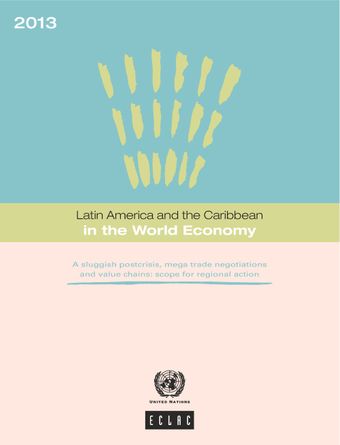Mega-regional negotiations: towards a new form of governance in world trade

- Author: United Nations
- Main Title: Latin America and the Caribbean in the World Economy 2013 , pp 57-83
- Publication Date: June 2014
- DOI: https://doi.org/10.18356/510b99e2-en
- Language: English Spanish
Since the early 2010s, and with particular intensity in recent months, a number of far-reaching trade negotiations have been in the works worldwide. Among them are a Transatlantic Trade and Investment Partnership agreement between the United States and the European Union; a Free Trade Agreement between the European Union and Japan; a Regional Comprehensive Economic Partnership among the 10 member countries of the Association of Southeast Asian Nations (ASEAN), Australia, India, New Zealand, China, Japan and the Republic of Korea; and a Free Trade Agreement among the latter three countries. These four processes (formally launched in 2013), come on top of the Trans-Pacific Partnership (TPP) negotiations under way since 2010 encompassing 12 countries of Latin America, North America, Asia and Oceania. All of these initiatives —referred to in the literature as mega-regional or mega-bilateral negotiations— are expected to have a profound impact on the global trade and investment architecture in the coming decades, especially in view of the continued impasse at the World Trade Organization (WTO) Doha Round.
© United Nations
ISBN (PDF):
9789210562317
Book DOI:
https://doi.org/10.18356/0229ee28-en
Related Subject(s):
Economic and Social Development
Sustainable Development Goals:
-
From This Site
/content/books/9789210562317c004dcterms_title,dcterms_subject,pub_keyword-contentType:Journal -contentType:Contributor -contentType:Concept -contentType:Institution105
/content/books/9789210562317c004
dcterms_title,dcterms_subject,pub_keyword
-contentType:Journal -contentType:Contributor -contentType:Concept -contentType:Institution
10
5



